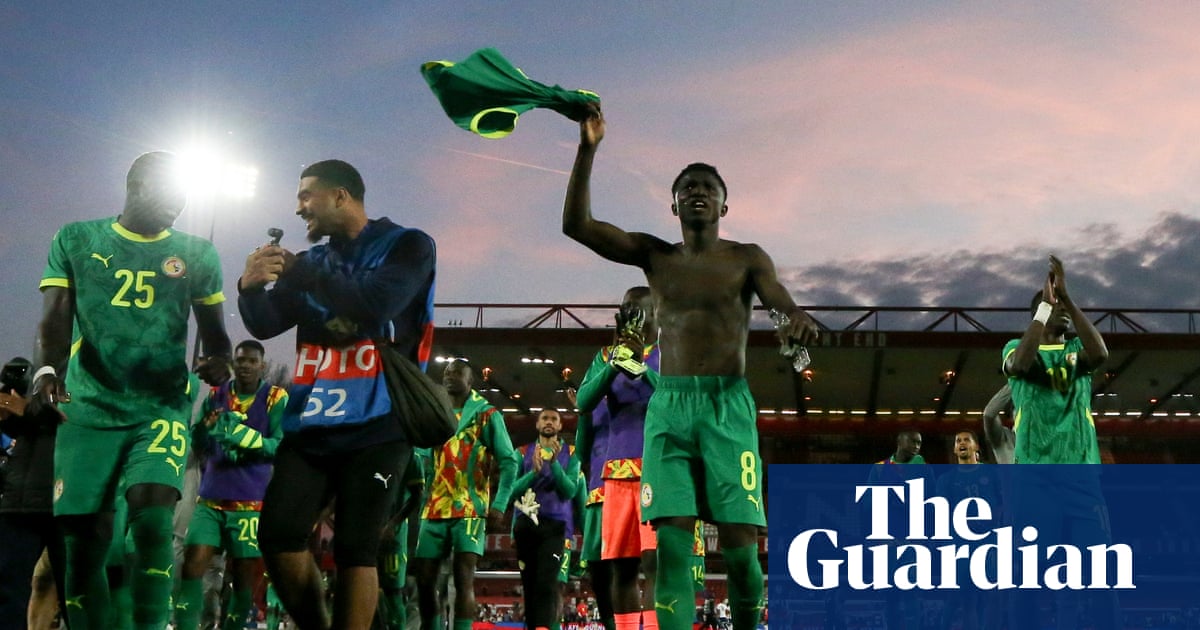England’s Brave Thomas Tuchel might be starting to understand why they call it “The Impossible Job”. On a balmy evening by the River Trent, it took Harry Kane just eight minutes to score against Senegal, and surely leave the edgy disquiet ofSaturday’s 1-0 winover Andorra behind. The fun summertime vibes didn’t last long:three Senegal goals later, the final whistle wasmet with a volley of boosand jeers, England coming up distinctly second best to their opponents. England’s men’s side had never lost to an African nation before, but a record that probably should have fallen at Italia ‘90 was finally claimed in June 2025 – and deservedly so. Senegal may have benefited from funky interpretations of both the handball rule and VAR intervention when Jude Bellingham’s equaliser was chalked off, but this was their night. “I want to congratulate my players for the tremendous performance and mindset they showed out on the pitch today,” manager Pape Thiaw said afterwards. “From the very beginning, they showed they wanted to win.”
Ever the diplomat, Thiaw also offered some encouragement to Senegal’s beaten hosts. “Well done to England as well, they showed some good form in certain periods of the game,” he said. The Daily must have drifted off for those bits, presumably somewhere between the visitors’ three quickfire goals, each smashed at speed past a leaden-footed defence. Cheikh Sabaly’s stoppage-time goal was exactly the kind of emphatic exclamation point that will empty a home stadium with maximum efficiency, leaving Senegal’s players to celebrate with their fans in a sole joyous corner of the City Ground.
As the dust settles and Tuchel takes a sledgehammer to his big tactics board at St George’s Park, we face a tricky balancing act when it comes to England’s conquerors. Senegal are recent Afcon champions, ranked in the world’s top 20 (and second only to Morocco in Africa), and have reached the World Cup’s knockout stages twice this century. This is not a side that should be patted on the head for winning a friendly; on the other hand, the gap in resources, status and personnel between the two sides should not be overlooked either. To give just one example, Thiaw’s contract is reportedly worth about£13,000 per month, while Tuchel trousersnorth of £400,000.
End-of-season tiredness was floated as a weak excuse for England’s performance, but their opponents had endured long seasons too. Ismaïla Sarr had just won the FA Cup with Crystal Palace while Sabaly earned promotion via the playoffs with Metz. Thiaw could not even call upon his nation’s best player, Sadio Mané, but no matter: one team in Nottingham looked like a cohesive unit with the energy and strategy to go far in next year’s World Cup, and it wasn’t England. And so the Lions of Teranga march on, unbeaten in 22 matches and atoning for their meek last-16 exit to England at Qatar 2022, where they failed to meet expectations. Tuchel must surely fear a rematch next summer, but Senegal are far from assured of their place. They currently sit second in their group, sandwiched between DR Congo and Sudan, with only the winner guaranteed to qualify. “We have two big, big qualifying games coming up so our focus is now going to be on those games,” Thiaw concluded, putting England firmly in their place as the warm-up act before the real main event.
If you do have any, please send letters tothe.boss@theguardian.com.Today’s winner of our prizeless letter o’ the day is … Christophe Brown. Terms and conditions for our competitions, when we run them, can be viewedhere.
Join Max Rushden, Barry Glendenning and the rest of the pod squad forthe latest episode of Football Weekly.
This is an extract from our daily football email … Football Daily. To get the full version,just visit this page and follow the instructions.
